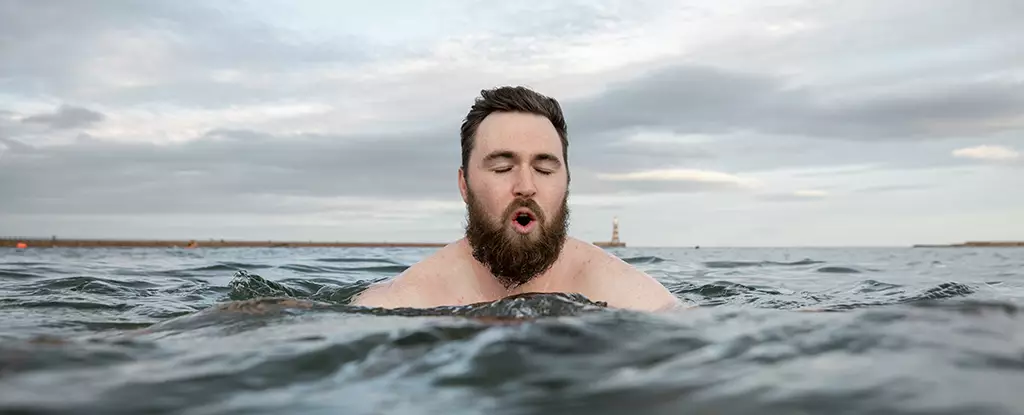Imagine surrendering to the arctic embrace of cold water, the shock sending ripples of adrenaline coursing through your veins. If you’re a seasoned cold water swimmer, the sensation is all too familiar—an immediate awakening of the senses that leaves you gasping yet invigorated. Recently, researchers from the University of Ottawa have explored what many have experienced first-hand; that the shock not only electrifies the mind but may also offer profound benefits at a cellular level. Cold water immersion is becoming more than just a brisk swim; it’s being recognized as a potential elixir for aging and disease prevention.
Understanding the Cellular Symphony of Adaptation
The essence of the study centers on ten young male participants subjected to daily cold water dips, each lasting an hour. The results are both fascinating and provocative. Initially, the body’s response to cold exposure spiked in a frenzy marked by stress and dysfunction in autophagy—a vital cellular cleansing process. As the volunteers continued the routine, their bodies learned to adapt, swiftly transitioning from chaos to harmony. Observing this remarkable turnaround, physiologist Glen Kenny notes the striking efficiency of cellular adaptation. This is akin to a finely tuned engine; given time and routine, it learns to operate optimally even in extreme conditions.
The reduction in apoptosis—programmed cell death—contrasts sharply with the initial rise, showcasing a transformation from a reactionary defensive mechanism to a proactive restorative process. This study shows how our body can be resilient, trained not merely to survive harsh conditions but to thrive within them, fundamentally altering our relationship with discomfort.
Cold Immersion: A Tool for Disease Prevention?
Perhaps the most tantalizing implication of this research is the suggestion that consistent exposure to cold water could help shield our bodies against diseases and slow down the grueling march of aging. The increased efficiency of autophagy—the body’s housekeeping mechanism—could dramatically mitigate the cellular waste that accumulates over time, commonly linked to degenerative diseases. Kenny illustrates this with a metaphor of a “tune-up for your body’s microscopic machinery,” hinting that the right kind of stress, in this case, cold water, can act as a catalyst for rejuvenation.
As enticing as this notion is, it’s vital to approach these findings with a critical lens. The study’s sample size of ten participants, all of whom were young males, raises questions about the applicability of the findings to wider demographics. We cannot presume that women or older adults would exhibit the same resilience or benefits without further investigation. The tightly controlled lab environment also deviates from the unpredictable nature of actual cold water swimming, where variables like air temperature and water currents come into play. These distinctions are crucial; they remind us that the human body’s responses are complex and influenced by myriad factors.
Unveiling the Dichotomy of Cold Exposure
The conversation surrounding cold water exposure is decidedly two-sided. While there are shining prospects of improved cellular function and health benefits, the risks cannot be overlooked. Cold therapy enthusiasts champion the practice, yet they often gloss over potential negative effects, such as the immediate shock that can exacerbate stress responses or the health risks posed to individuals with certain medical conditions. Therefore, while the researchers herald the beneficial aspects of acclimatization, it is equally important that we acknowledge the necessity of further studies and personalized approaches to cold exposure.
In a society increasingly consumed by climate control and indoor convenience, the wisdom of nature and its raw elements is often undermined. Cold water swimming is emerging as a clarion call, urging us to step outside our comfort zones and embrace life’s challenges, not merely for the physical benefits but for a holistic reconditioning of our mental resilience. This remarkable study sheds light on a path that transcends mere wellness trends; it beckons a revolution in how we perceive physical challenges in our journey toward health.

